2 min read
Gospel-Centered from the Start
“Let us hold unswervingly to the hope we profess, for He Who promised is faithful…Jesus Christ is the same yesterday, today, and forever.” (Hebrews...
My dad died on December 12 of this year. His death was by no means a tragedy. He was 89 years old, had lived a full, meaningful life and died surrounded by people who loved him. It was, as deaths go, a good one. He knew Jesus as his personal Savior and must now be either sitting at his feet surrounded by the best version of easy listening or playing endless innings of heavenly baseball.
But the fact that it wasn’t a tragedy doesn’t negate the grief.
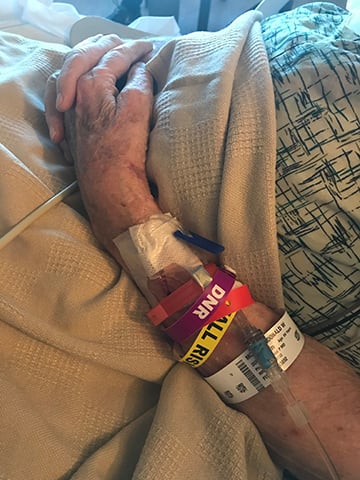
A pall was cast over the entire season – again, not necessarily a bad thing.
I found myself more thoughtful, less frenzied, less interested in bells and jolly Christmas carols, more drawn to hymns.
“A thrill of hope the weary world rejoices,
For yonder breaks a new and glorious morn."
My dad didn’t want to die. He had a lot to live for – a wife, children, grandchildren, great grandchildren (including one on the way), friends, interests. Some of his last words to me were, “Don’t give up on me.”
I suspect that line may haunt me for the rest of my life. By choosing “comfort care,” did we give up on him? Was there more that could have been done to prolong his life? We will never know. But, if we believe the promises of Scripture, we do know this: Dad is not now bemoaning extra hours, weeks or even months here on earth. Extra time has lost its appeal because he is in the midst of eternity – in the presence of Jesus. A new and glorious morn has broken for my dad.
I recently read the following words by the famous British philosopher Bertrand Russell and was struck by how antithetical the sentiment is to any semblance of hope: “There is darkness without, and when I die, there will be darkness within. There is no splendor, no vastness anywhere, only triviality for a moment, and then nothing.”

My dad and I are clinging to a completely different reality. Dad believed in splendor. He believed in the vastness of God and his creation. And I do not think for a moment that my dad’s life was trivial. Dad was a science educator and saw science and faith as not only compatible but complementary. It was important to him to make science accessible to elementary students, and he thought the best way to do that was to create cognitive dissonance through simple experiments – experiments that would make a child ask, How can that be? (Try this one: Take a full glass of water, cover it with an index card and hold the card in place while you turn the glass upside down. Then, let go. The water should stay in the glass. How can that be?)
When I got home, I embraced the permission to forego much of the craziness of the season – shopping and cards and parties – and just think. Consider my dad’s life. Consider my life. Consider his death. Consider my death. Consider death. Period. And life in light of death.
“Teach us to number our days,
that we may gain a heart of wisdom.” – Psalm 90:12
Perhaps the Christmas story includes elements of death for this very reason – to remind us that life and death are closely tied.
Simeon prays, “You may now dismiss your servant in peace, for my eyes have seen your salvation…” Those words apply to all of us who believe. No matter the timing of our death, we may die in peace.
More haunting are Simeon’s words to Mary, “A sword will pierce your soul.” Mary is holding a beautiful, eight-day-old baby, the Child of Promise, and Simeon speaks to her of suffering. He prophesies about the Christ child’s death. Because the manger and the cross are inextricably linked. God became man in order that he might die for our sins. Ribbons, bows and bells are of little value without the cross and the empty tomb.
Finally, there is the story in Matthew 2 of the killing of all the male children two years old and younger in the region of Bethlehem. Sometimes we act as though Christmas is sanitized joy, but it is not. We cannot look at the fluffy sheep and the bright angels without seeing the weeping mothers, and then we must wrestle with the cognitive dissonance: How can this be?
I arrived at the hospital on a Sunday. My dad died early Wednesday morning. I kept vigil at his bedside – sometimes alone, mostly with others – watching him struggle for every breath as friends and family came to visit and communicate those final messages of love and farewell.
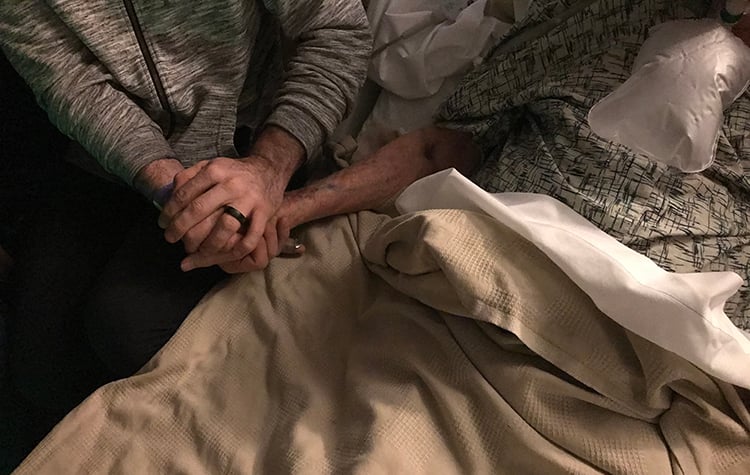 My sister held his hand and said to him, “I love you, Dad,” and Dad replied, “I know you do, and I love you right back, and what could be better than that?” Indeed. My dad was a man well-loved right up to the end.Many people – Sunday school members, step-children, colleagues – spoke of Dad’s kindness, a character trait I had previously dismissed as “nice” but not terribly significant. Give me men of conviction, passion, strength. But what I saw over those few days was the transforming power of kindness. Again and again, people spoke of my dad welcoming them and making them feel special.
My sister held his hand and said to him, “I love you, Dad,” and Dad replied, “I know you do, and I love you right back, and what could be better than that?” Indeed. My dad was a man well-loved right up to the end.Many people – Sunday school members, step-children, colleagues – spoke of Dad’s kindness, a character trait I had previously dismissed as “nice” but not terribly significant. Give me men of conviction, passion, strength. But what I saw over those few days was the transforming power of kindness. Again and again, people spoke of my dad welcoming them and making them feel special.
One of his granddaughters, Courtney, wrote this: “I have never met anyone as genuinely kind as my grandfather. It was in his blood. Compassion flowed through his body and enveloped everyone within reach. He was very much loved and impacted everyone who was lucky enough to meet him. I’m so grateful I was able to say goodbye and thank him for loving me.”
Another granddaughter, Bobbi, sat next to him on his hospital bed, hugged him and said, “I think we all know my dad is not much of a hugger, but you were that for me, Grandpa. You asked me to sit on your lap, give you ‘ouch hugs,’ called me ‘your girl.’ I will always be your girl, Grandpa. I love you.”
Former grad students said he was like a second dad to them. People who would otherwise have been alone for Thanksgiving said he welcomed them into his home. Kindness as a way of life leaves a legacy. It changes people.
"Be kind and compassionate to one another, forgiving each other, just as in Christ God forgave you."
- Ephesians 4:32
Dad reflected Christ in his kindness. He reflected Christ in his appreciation for the beauty and science of creation. And, perhaps without even knowing it, he reflected Christ through the love that surrounded him at his death.
Death and Christmas might seem like an odd combination, but I'm actually glad God wrote the story this way. From here on out, the celebration of Christmas will coincide with the anniversary of my dad's death and I will be reminded that I do not grieve as one who has no hope.
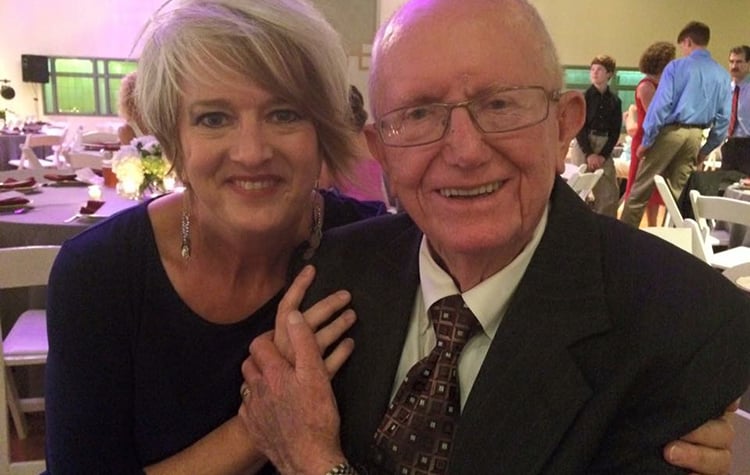
The Christmas season is over, but any time is a good time to consider the significance of his coming and how his birth (and death) changed the world forever. Click below to download your free devotional.

2 min read
“Let us hold unswervingly to the hope we profess, for He Who promised is faithful…Jesus Christ is the same yesterday, today, and forever.” (Hebrews...

9 min read
To celebrate 75 years of serving the Inland Northwest, we are spending the year remembering our history and the faithfulness that built us and...

2 min read
In 2026, Union Gospel Mission Inland Northwest is approaching our 75th Anniversary! This is a milestone that invites gratitude and reflection, and...
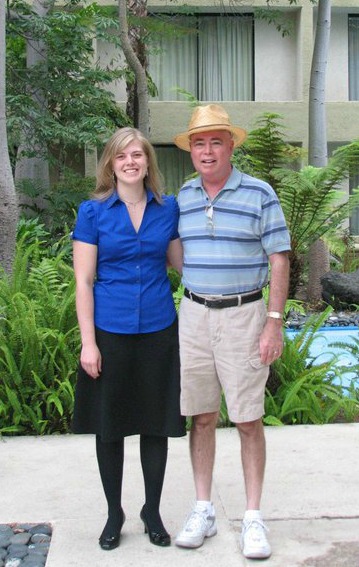
By Lynn Swanbom Yount, UGM Volunteer That's an odd title for a reflection commemorating my Dad's death five years ago today.
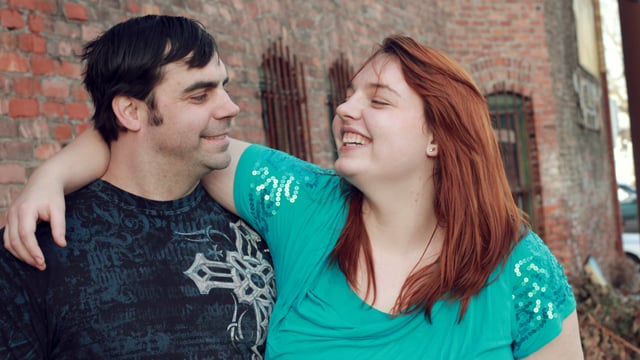
Editor’s Note: Ashley and her dad, Chris Kent, were featured on the cover of the February 2014 Mission News. Chris was absent from Ashley’s life for...
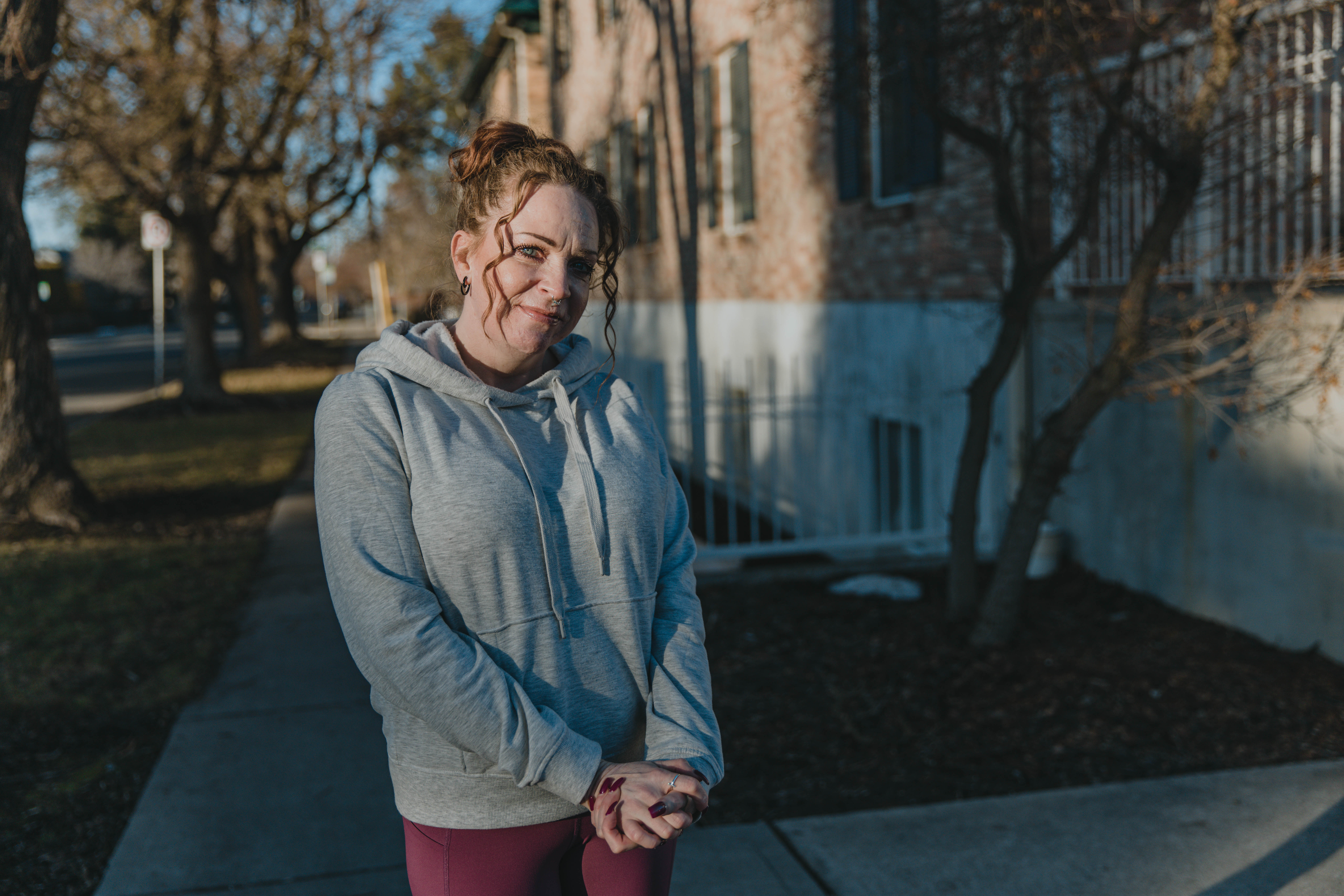
“I came here looking to get out of the desperation and the shame and the pit that I was in.” For 46 years, Ruschell battled the abuse, addiction and...